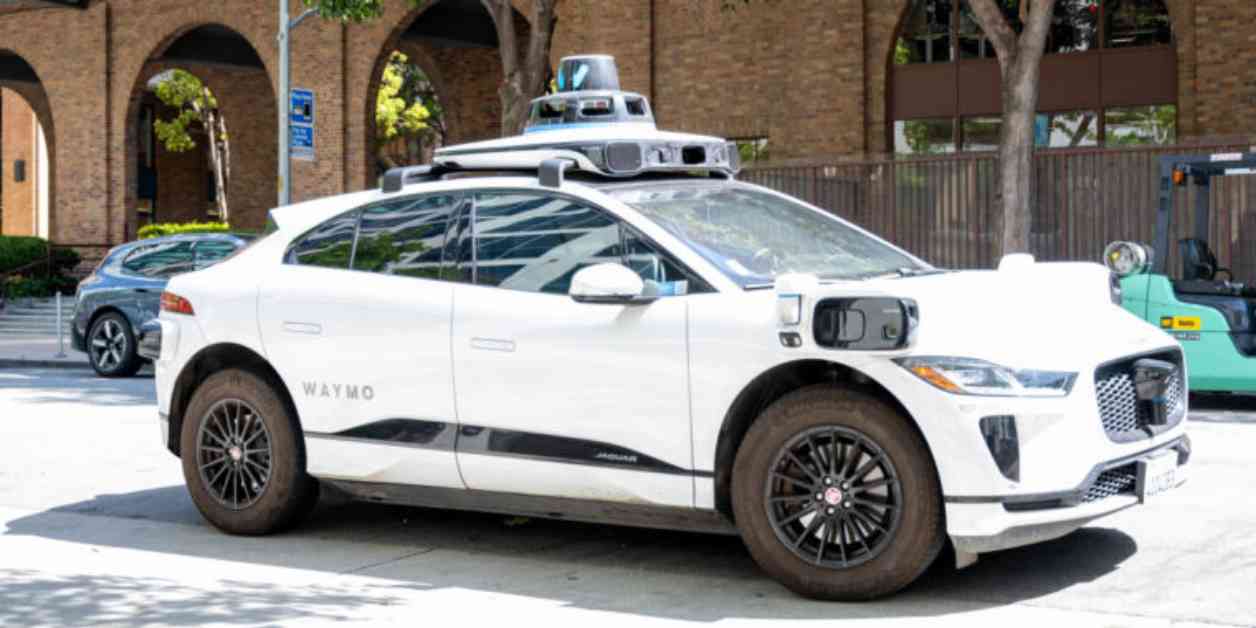The emergence of self-driving cars has long been heralded as a technological revolution, promising safer roads, reduced traffic congestion, and increased convenience for commuters. However, in a peculiar turn of events, Waymo self-driving cars in San Francisco have been causing a disturbance in the quiet neighborhood of South of Market with their incessant honking, leaving residents perplexed and sleep-deprived.
The Ghost in the Machine
The eerie phenomenon of Waymo cars honking at each other in a parking lot without any human intervention has sparked concerns among residents and raised questions about the reliability of autonomous vehicles. Videos captured by residents and shared with NBC Bay Area show the self-driving cars entering the parking lot off 2nd Street near Harrison Street and engaging in a bizarre honking exchange, seemingly triggered by their proximity to one another. The automated nature of these interactions, particularly at night, has disrupted the peace of the neighborhood, leading to sleepless nights and mounting frustration among those affected.
Christopher Cherry, a resident in a nearby high-rise building, initially welcomed the presence of Waymo vehicles in the area, hoping they would contribute to local security and tranquility. However, as the honking incidents became more frequent and disruptive, his optimism gave way to exasperation. “We started out with a couple of honks here and there, and then as more and more cars started to arrive, the situation got worse,” Cherry recounted to NBC Bay Area. The lack of human operators in the vehicles further complicated the matter, as there was no one to address or hold accountable for the disturbances.
The Disruption Unveiled
The disruption caused by Waymo self-driving cars in San Francisco highlights the challenges and unintended consequences that arise in the deployment of autonomous vehicles in urban environments. While the technology holds great promise for enhancing mobility and reducing accidents, incidents like the honking debacle shed light on the complexities of integrating AI-driven systems into everyday life. The fact that these cars, devoid of human drivers, are engaging in seemingly nonsensical behavior underscores the need for comprehensive testing, monitoring, and oversight to ensure the safe and efficient operation of self-driving vehicles.
The peculiar nature of the honking incidents, occurring predominantly in the early hours of the morning, has drawn attention to the limitations and vulnerabilities of autonomous systems. The lack of a clear mechanism for addressing the issue, coupled with the delayed response from Waymo’s corporate headquarters, has left residents feeling frustrated and powerless in the face of this technological disruption. The subsequent statement from a Waymo spokesperson acknowledging the problem and promising a fix reflects the ongoing challenges in fine-tuning and optimizing self-driving technology for real-world scenarios.
Navigating the Future of Autonomous Vehicles
As the development and deployment of self-driving cars continue to advance, it is essential to address the issues of accountability, transparency, and community engagement in shaping the future of autonomous mobility. The honking incidents involving Waymo vehicles in San Francisco serve as a cautionary tale, reminding us of the importance of human oversight and ethical considerations in the implementation of AI-driven technologies. While the convenience and efficiency of self-driving cars hold immense potential, ensuring their responsible and safe integration into society requires a holistic approach that considers the diverse needs and concerns of communities.
The unintended consequences of self-driving technology, such as the noise disturbances caused by Waymo cars in San Francisco, underscore the importance of ongoing monitoring, evaluation, and regulation of autonomous systems. The interaction between AI algorithms and physical environments can lead to unexpected behaviors and challenges that must be addressed through continuous testing and refinement. By fostering collaboration between technology developers, regulatory agencies, and local communities, we can work towards creating a sustainable and harmonious future for autonomous mobility.
In conclusion, the honking incidents involving Waymo self-driving cars in San Francisco serve as a wake-up call for the complexities and challenges of integrating autonomous vehicles into urban environments. As we navigate the future of transportation, it is crucial to prioritize safety, accountability, and community engagement in shaping the development and deployment of self-driving technology. By addressing the concerns raised by residents and proactively addressing the issues highlighted by the honking debacle, we can pave the way for a more sustainable and inclusive approach to autonomous mobility.






















